Phoenix Suns
22 for 22: Suns could triple down by dealing unprotected 2031 pick

The meme-turned-saying goes “[expletive] around and find out.”
NBA front offices are going to find out over the next decade. The Phoenix Suns are included in that group of expletive-ing around and could further sink themselves into finding out if they choose to use arguably their most valuable trade asset this summer.
Thanks to Phoenix’s limited war chest of assets and the restrictions placed on teams in the second apron, its best chance at acquiring a legitimately impactful player beyond striking gold with a minimum signing or selection at No. 22 is dealing its first-round pick in 2031 — in a trade with a player or combining it with the 22nd pick — that becomes trade eligible on draft night.
More specifically, the Suns would be expletive-ing around by not placing any protections on it, a decision that could have major consequences. It could also land the Suns the player to put them over the top. Thus, the choice ahead.
This is a gambit with a fascinating history that has spiked in activity from teams over the last couple of years.
The Ringer took a long look at protecting picks and found the first NBA trade with picks holding protections was in 1984. By the late 2000s, the expectation was a first-rounder would almost always be protected.
The risk of leaving it unprotected was too severe. Front offices couldn’t accept the off-chance of dealing a pick, having the other team win the NBA Draft Lottery and losing out on a once-in-a-generation prospect. Too much could go wrong. Teams needed to layer the picks with “what if?” outs in case it all unexpectedly spiraled quickly: Lottery protections, top-five protections and so on.
In turn, this amplified the value of an unprotected first-round pick tremendously, and predictably, this created a market shift.
There were hardly any deals in the mid-to-late 2010s that featured an unprotected first. Phoenix itself was one of the few, dealing Goran Dragic to Miami for two unprotected first-round picks, a type of confidence you’d only see from an executive like the Heat’s Pat Riley.
There was a Milwaukee Bucks salary dump and acquisition of George Hill in 2018, a pick that wound up No. 20 overall in 2023. The Dallas Mavericks included a 2021 first-rounder without any strings attached for the package getting back Kristaps Porzingis in 2019 and the selection landed 21st.
But then a new standard was set when the Los Angeles Clippers acquired Paul George from the Oklahoma City Thunder during the 2019 offseason. The haul on picks alone was massive: Three of Los Angeles’ own unprotected first-round picks, two more via the Heat and two more pick swaps, giving OKC the right to move into L.A.’s slot in the first round. That was also unprotected.
We’ll get to the downfall of that deal in a minute after establishing what the precedent created. The Brooklyn Nets snagged James Harden from the Houston Rockets in 2021 for three firsts and four swaps, all unprotected. Harden’s shipment to Philly two years later yielded one unprotected first-rounder, and so did Brooklyn departing with Kyrie Irving as well.
The Utah Jazz over two offseasons landed six separate unprotected first-round picks when sending Rudy Gobert to Minnesota and Donovan Mitchell to Cleveland, three from each and a fourth top-five protected from the Timberwolves. Mitchell delivered two pick swaps as well. The Portland Trail Blazers’ haul for Damian Lillard had them end up with two unprotected firsts. The price for Dejounte Murray of two unprotected firsts and one swap was paid by the Atlanta Hawks.
And then there was Kevin Durant coming to the Valley. Four unprotected first-round picks and one swap.
The majority of these picks and swaps have not come to fruition yet, so we don’t really know how bad it can get. It, uh, has already backfired quite a bit for some, though.
On top of the Clippers giving up the best player in the George deal (Shai Gilgeous-Alexander), the 2022 first-round pick sent out was used to select Jalen Williams, a future All-NBA guy. Whoops. The Rockets’ return for Harden just got them the third overall pick in this year’s draft and Brooklyn’s got two more swaps (2025 and 2027) and a first in 2026 to sweat. The Rockets are definitively better than the Nets right now and will only improve. Yikes.
So that’s not great. But with that said, the Rockets picking third later this month is the first time someone has been burned in this new wave by a complete lack of protections and the circumstances speak to how there is unpredictability for both sides.
Brooklyn had no idea its Big 3 superteam would self-combust in a spectacular Michael Bay fashion across just 13 months. Houston also had no idea potentially the highest pick it would land comes in a draft class that from a pre-draft evaluation standpoint has the worst top-five talent in over a decade.
The lottery balls still have to bounce the right way. The Nets pick sent to Houston jumped six spots. It was an unlucky outcome for Brooklyn, which had just a 14.5% chance of occurring. Then again, there are now increased odds for those teams to jump since the recent changes made by the league lessened the incentives for tanking.
Overall, there is significant risk in trading away an unprotected first-round pick. But it does not guarantee that the decision will doom the team that does so, or even really inspire barrels full of regret. Sometimes it’s a shrug, more dependent on how the players received pan out than the picks sent the other way. Again, it’s a gambit.
Does it make sense for the Suns this summer? In a way, yes.
They have already leveraged a whole lot of future assets toward this era of Phoenix basketball. The next couple years of the post-Devin Booker Suns will be rough and that pick won’t change that fact. By 2031, Booker will be 35 years old at the turn of the new season. And as previously covered, the Suns do not have much at their disposal to upgrade this roster it has committed so much to as it is.
It has to be asked, however, when enough is enough. When Phoenix’s front office looks at the current situation and realizes it can’t guarantee a Finals run even if a crucial acquisition is made. The next iteration of the Suns will have to start from the bottom when it comes to bringing in star-level talent and the easiest way to do so has always been the draft. Every swing of the bat helps.
There is a duality to the value of the pick as well. The appeal is no one has any idea what the Suns will look like in seven years and nearly everyone would guess fairly bad. It’s also seven years away and a good number of GMs won’t have their jobs by then. The maximum appeal would be to organizations already stockpiling picks that know they will still be pretty mediocre at best for the next couple seasons before a roster built to contend can be further upgraded on the trade market with picks like this hypothetical Phoenix one.
Maybe the Suns could just let a rebuilding squad over-saturated with younger players punt on this year’s underwhelming draft and get an alluring trade chip for further down the line. This would allow Phoenix to move up in the draft from 22nd and increase its odds of finding both a short- and long-term difference-maker. Portland picks seventh and 14th. There’s Houston at No. 3 and the Spurs own Nos. 4 and 8. Providence’s Devin Carter would be a perfect complementary guard. Rim protection issues would be solved with UConn’s Donovan Clingan and his teammate Stephon Castle has some superstar role player upside.
How about using the pick in exchange for an NBA player? In that scenario, a three- or four-team deal would have to emerge. The salary matches with Jusuf Nurkic, Nassir Little or David Roddy are lacking, to say the least, for the type of high-impact contributor we are envisioning. Why?
Those names would come via a Nurkic deal and the problem with the majority of those is that it would require the team taking back Nurkic to be OK with the two more years remaining on his salary in order to get the picks. Mitchell Robinson in New York would be a legitimate upgrade at center for Phoenix but all the Knicks would be doing is adding more picks to make their center rotation worse when they want to win now and already have two late first rounders this year. It’s a similar ask for an on-the-upswing Orlando Magic with Wendell Carter Jr.
Perhaps the Chicago Bulls would see the light, that their current situation is cooked and that it’s time to load up on picks. Getting two first rounders for guard Alex Caruso (and salary filler) in exchange for eating Nurkic’s deal is at least worth a meeting for the Bulls front office. For the Suns, Caruso is the same size as Grayson Allen but brings the required defensive skill set as a Second Team All-Defense member that is not a zero on offense, either. He is on an expiring contract, so it’s likely a rental unless Mat Ishbia keeps on spending.
Needless to say, there are lots of hoops to jump through to theoretically find a deal involving the pick that all parties would heavily consider. But if the Suns locate it, they’d face their biggest decision of the offseason during their attempt to salvage this.
READ NEXT;
5 Suns draft targets in 2024 NBA Draft – wings editionSuns Star Kevin Durant Fires Back at Fan Over ‘LeBron Style’ Suggestion
Penrith sign Tigers back Kepaoa as cover for May
Taylan May fronts Panthers board to answer show-cause notice
-
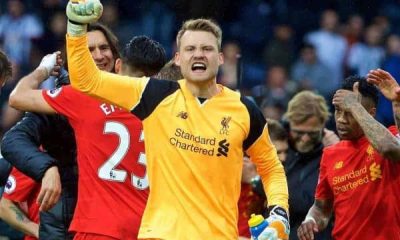
 Club Brugge1 month ago
Club Brugge1 month agoEx-Liverpool goalkeeper just won 4th title in 5 years since £8.3m exit
-
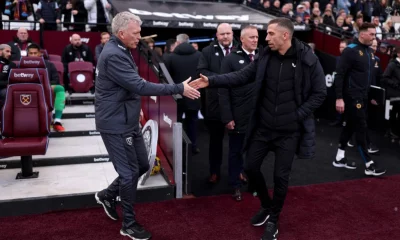
 Wolverhampton wanders6 months ago
Wolverhampton wanders6 months agoWolves agree transfer deal and it’s great news for West Ham over striker hopes
-
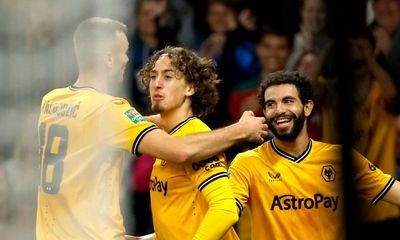
 Wolverhampton wanders7 months ago
Wolverhampton wanders7 months agoMassive clubs now want Wolves outcast who’s barely featured under O’Neil
-
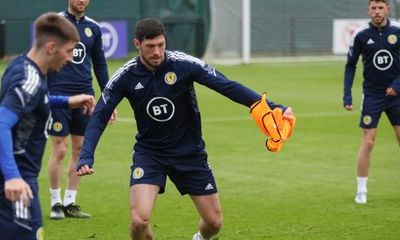
 Celtic6 months ago
Celtic6 months agoCeltic now make approach to sign Scott McKenna
-
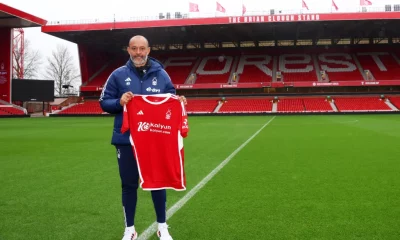
 Nottingham forest7 months ago
Nottingham forest7 months agoNuno did something at Wolves which Nottingham Forest fans really won’t like if it continues
-

 New Zealand warriors3 months ago
New Zealand warriors3 months agoEx-Warriors and Storm prop released by overseas club
-
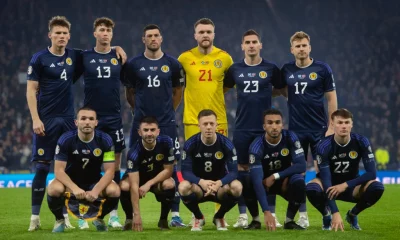
 Celtic6 months ago
Celtic6 months agoCeltic and Rangers both want to sign £3m Scotland international
-
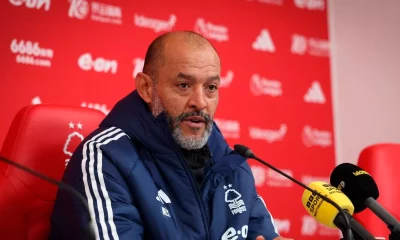
 Nottingham forest7 months ago
Nottingham forest7 months agoNew boss Nuno sends pointed Nottingham Forest transfer message as he eyes Wolves repeat

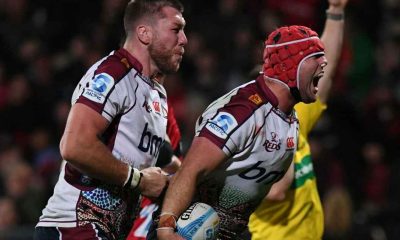

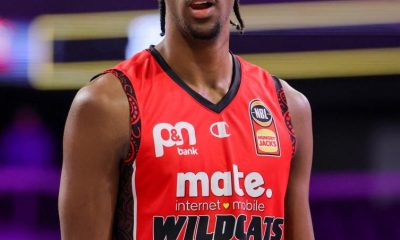

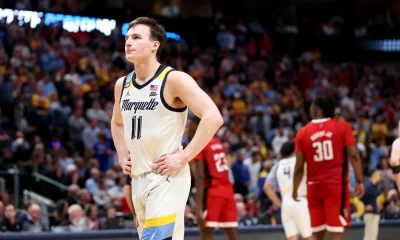

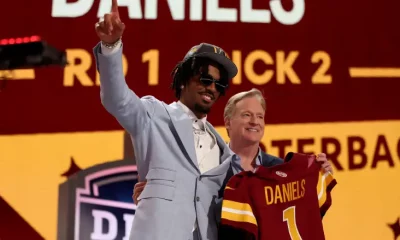



Pingback: NBA Draft 2024: The strength of the draft is in the backcourt
Pingback: Charles Barkley says next season will be his last on television